Delving into the depth of what "good" coffee means
Every morning, as dawn breaks, millions stir from slumber, their day initiated by the ritualistic brewing of coffee. This beverage, with its enveloping aroma and invigorating taste, plays a pivotal role in our global society. From clandestine rendezvous in romantic locales to fueling high-powered business meetings, coffee occupies a sacred space in our routines. But amidst this universal appeal lies an intriguing question: what defines a "good" coffee?
As we delve into the depth of what 'good' coffee means, it's also essential to consider the health aspects. Understanding the caffeine content of coffee is crucial, as it can vary widely depending on factors like the type of bean, roast, and brewing method.
Historical footsteps
Intricately woven into the annals of history is coffee's enchanting tale. The legend of Kaldi and his spirited goats offers just a vignette of coffee's journey. After this serendipitous discovery in the Ethiopian wilderness, coffee seeds embarked on a journey of their own. Cultivated under Arabian suns, they became the potion of the elite in Yemen, eventually finding themselves being savored in Venetian palazzos and later energizing the industrious vibes of American urban landscapes. Through each epoch, coffee reinvented itself, transforming from a mystical Sufi potion in the Middle East to a symbol of European sophistication and then into an emblem of American enterprise and innovation.
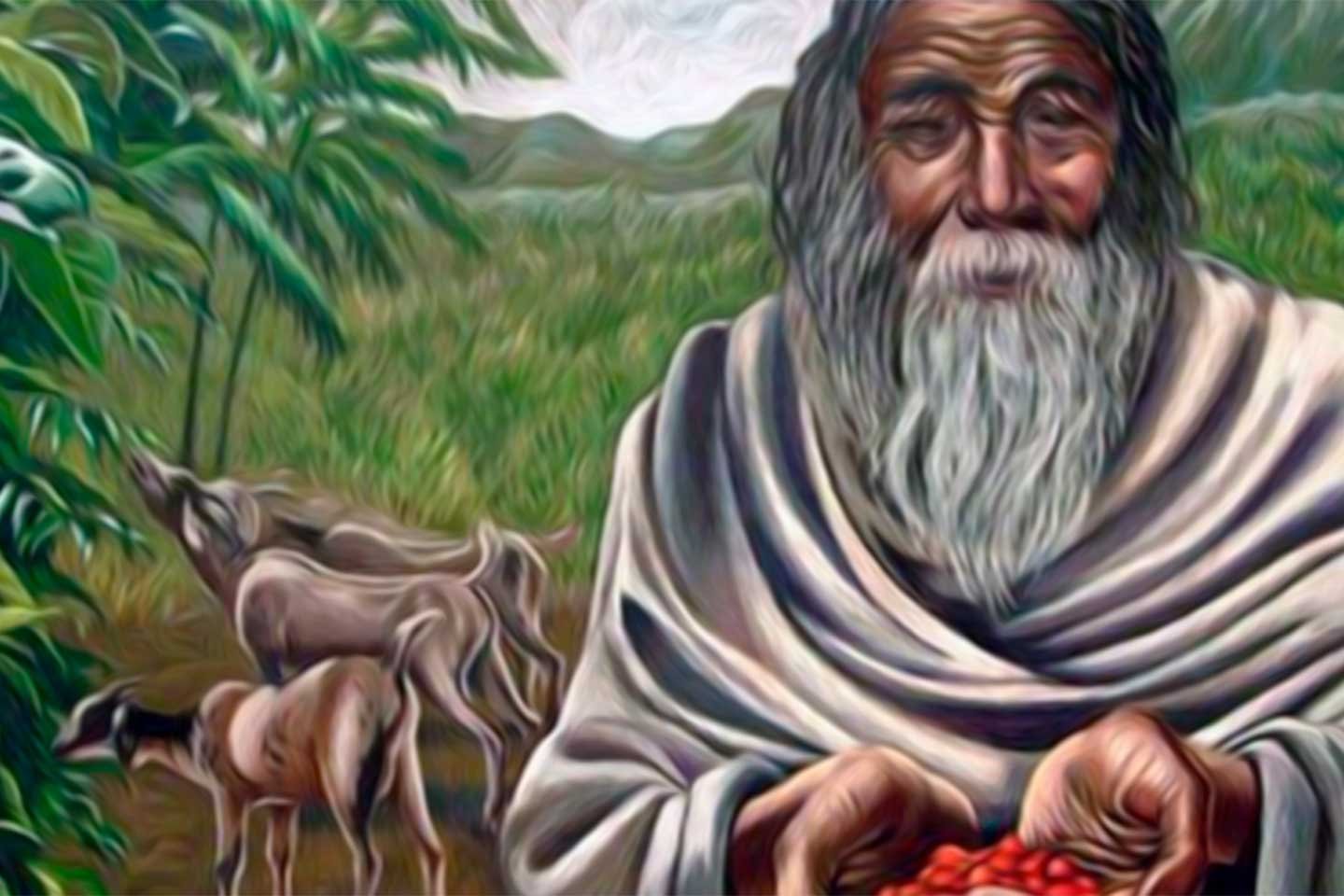
The subjectivity of taste
Imagine savoring a cup of ‘egg coffee’ in Vietnam, where creamy egg yolks blend with coffee, offering a dessert-like treat. Contrast this with the minimalist approach in Nordic countries, where coffee, often light-roasted and unadulterated, is savored for its nuanced flavors. Travel to Turkey, and your coffee might come with a touch of mysticism, as it's often associated with fortune-telling traditions.
In Ethiopia, the birthplace of coffee, the coffee ceremony is an elaborate ritual, reflecting the nation's deep-rooted respect for this beverage. This spectrum of preferences doesn't just highlight the diversity in flavors and brewing methods but also underscores a deeper narrative. The taste, preparation, and consumption of coffee is a window into a region's history, its socio-cultural nuances, and its interaction with the wider world. "Good" coffee, thus, is not just about the perfect roast or the ideal brewing temperature; it's about stories, memories, and the intricate dance of cultures.
In this exploration of coffee, we don't just seek to understand a beverage; we endeavor to delve into a rich reservoir of global traditions, experiences, and emotions. As we explore the story of coffee, we're not merely tracing the journey of a bean; we're navigating the pathways of human civilization.

A global affair: coffee’s journey around the world
In the quiet rustle of the coffee plantations, in the aromatic waft from steaming mugs in diverse lands, and in the universal clinking of coffee cups, lies an epic saga. This isn’t just about a beverage; it's the chronicle of human endeavors, innovations, and the ceaseless intertwining of cultures and destinies.
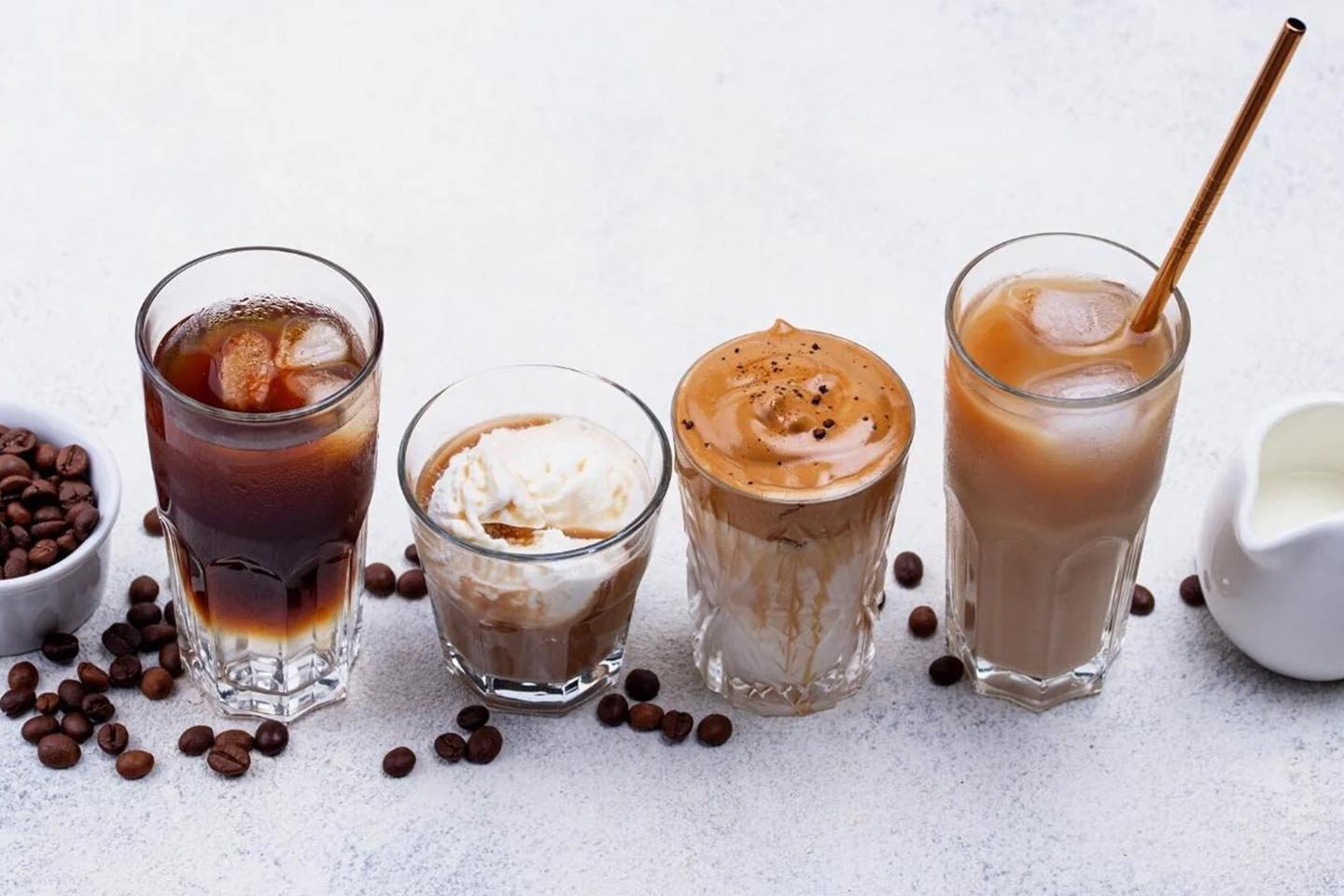
Major coffee hubs and their rich histories
The world map of coffee is dotted with tales of adventure, intrigue, and passion. When the Dutch introduced coffee to Java in Indonesia, they did more than plant a crop. They planted an identity, one that would define the region's ecology, economy, and global repute. But Indonesia is just one thread in this global tapestry. Think of Brazil, today's coffee giant, a legacy of its Portuguese colonizers who recognized the potential of its sprawling landscapes. Or Yemen, where the port city of Mocha, synonymous with a certain coffee type, was once the epicenter of the coffee trade, linking the East and West.
And then there's the romanticized tale of Baba Budan, an Indian pilgrim who, legend has it, smuggled seven coffee seeds from Mecca, laying the foundation for India's coffee plantations. These tales are not just of plantations and produce but of geopolitical maneuverings, cultural exchanges, and often serendipitous events.
Coffee cultures in their full splendor
Each nation, each community, embraces coffee and makes it their own. The Turks, for instance, grind it to a fine powder, brewing it unfiltered, resulting in a rich, robust drink where the grounds settle at the bottom, ready to tell your fortune. This tradition, mystical in its allure, is as much about bonding as it is about the brew.
Venture to the Middle East, and you'll find coffee infused with cardamom, a fragrant nod to ancient trade routes and the region's storied history with spices. Italy gave us espresso, a quick yet potent shot, reflecting perhaps the fast-paced vibrancy of Italian city life. And then there’s the Ethiopian coffee ceremony, a spiritual, communal experience symbolizing respect and friendship.
South Korea’s transformation into a coffee-consuming giant brings with it unique cafes – from ones filled with flowers to others boasting vintage vinyl collections. The café culture here isn't just about the drink; it's about aesthetics, experience, and creating memories.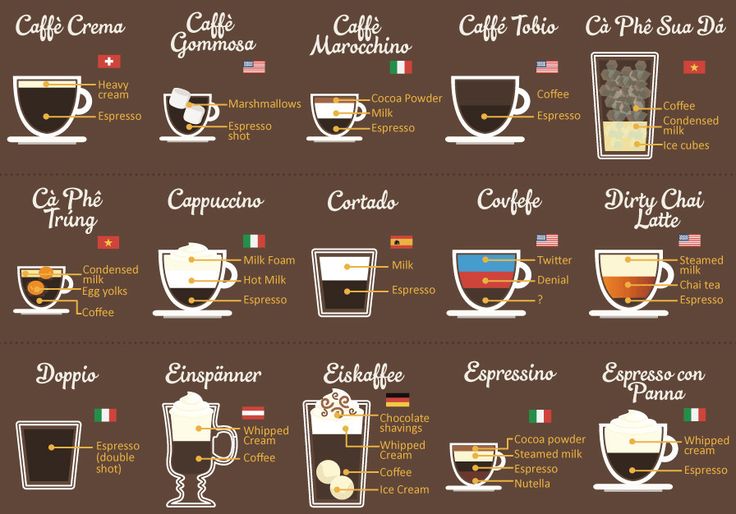
This isn't merely a beverage being sipped; it's history, anthropology, and art in a cup. As we traverse continents and cultures, it becomes evident that coffee isn't just loved universally – it's revered, adapted, and celebrated in myriad, beautiful ways.
When do we crave coffee? Exploring the times and reasons.
If the journey of coffee beans is an odyssey across terrains and cultures, the timing of its consumption is a dance with changing eras, purposes, and social constructs.
Coffee’s chronological evolution
The dawn of coffee's consumption saw it embraced by Ethiopian monks as a secret elixir, enabling them to converse with the divine in prolonged nocturnal vigils. But as the beans traveled beyond the monastic walls of Africa and into the vivacious landscapes of the Middle East, it began to find its place in more secular settings, with people enjoying it in gatherings after sunset prayers.
The coffee story took a significant turn in 17th-century Europe. In cities like London, Venice, and Paris, the emerging coffeehouses, known as 'penny universities,' became more than places to savor a cup. They were stages for the period’s zeitgeist. Intellectuals, traders, and politicians found in these establishments a fertile ground for discourse, debate, and the exchange of ideas. Sir Isaac Newton and the members of the Royal Society often mulled over scientific theories with coffee cups in hand, while writers like Jonathan Swift and Alexander Pope traded wit and satire over their brews.
In the Americas, the coffee narrative wove itself into the tapestry of the industrial revolution. As factories roared to life and cities never slept, coffee became the fuel for the workforce, a tool to battle the fatigue of long hours. The modern espresso shot, quick and potent, was in many ways a response to the fast-paced momentum of the 20th century.
Modern-day resonance
Today, coffee's temporal journey continues to evolve. Morning brews prepare individuals for the challenges of the day, while afternoon cups offer respite in busy schedules. Evening coffees, often decaffeinated, are less about the kick and more about relaxation and social bonding.
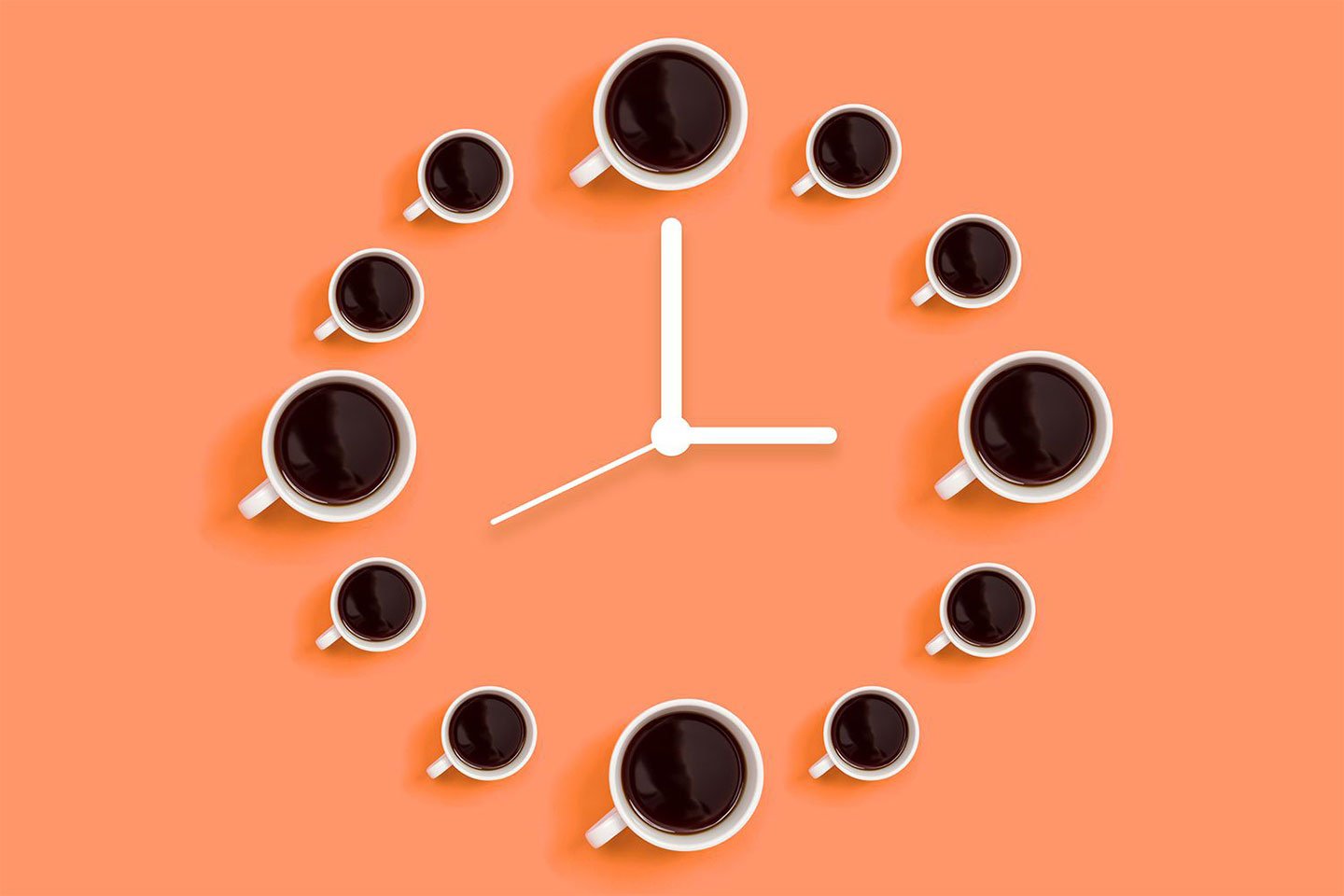
Urban landscapes dotted with coffee chains like Starbucks and artisanal coffee shops speak to this drink's versatility. Students swarm in during late hours, using the cafe ambiance for study sessions. Freelancers see them as makeshift offices, while friends view them as reunion spots. In many ways, these modern cafes echo the intellectual and social hubs of the 17th-century, but with a touch of technology and the contemporary zeitgeist.
Coffee, in essence, isn't just dictated by the clock or calendar. It is interwoven with our emotions, needs, and the ebb and flow of societal tides. Whether we're reaching for a mug to invigorate our mornings or sipping on a cup as the sun sets, it's clear: coffee's temporal tale is as rich and varied as its flavors.
Beyond the mug: coffee’s myriad avatars
From the humble mug on our breakfast table to gourmet dishes and the luxurious realms of wellness, coffee has transcended its role as just a beverage. It seeps into our kitchens as an aromatic ingredient, and ventures into our beauty regimens, echoing its versatility and global appeal.
Culinary adventures with coffee
In Italy, the scent of coffee wafts not just from espresso machines, but also from dessert trays showcasing the layered decadence of tiramisu. The allure of coffee-soaked ladyfingers, cushioned between creamy mascarpone, showcases coffee’s dual ability to be both the star and the enhancer in culinary creations.
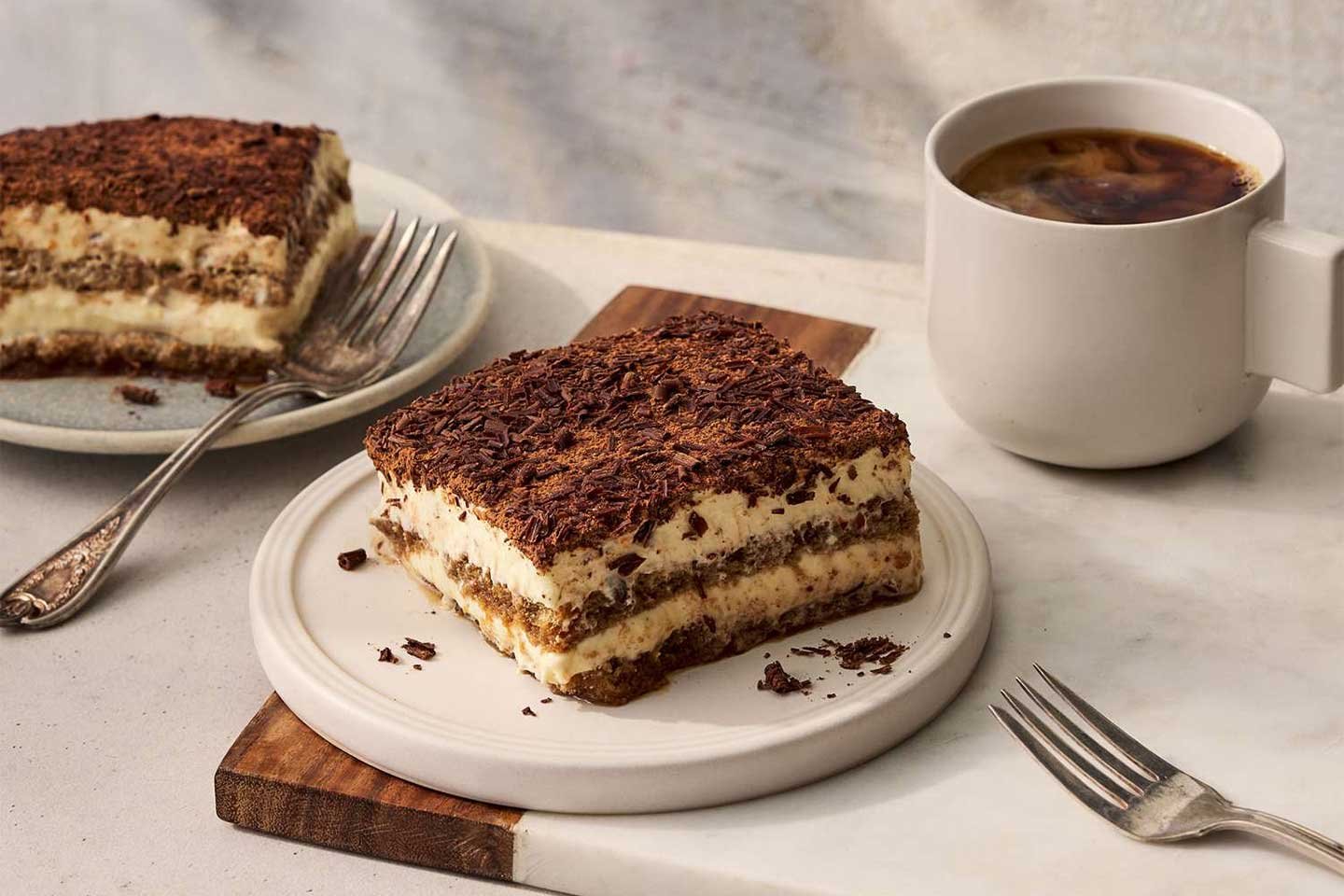
But the culinary romance doesn’t stop in Europe. Travel to Mexico, and amidst the symphony of chilies, chocolate, and spices in a traditional mole, you might discern the subtle depth added by coffee. This addition, though modest, showcases how coffee can be a canvas, accentuating and deepening the profiles of other ingredients.
In Australia, backyard barbecues, an integral part of the nation's culture, have seen an intriguing twist. The dry rubs, a blend of spices and herbs used to marinate meats, often incorporate finely ground coffee. The result? A smoky, charred flavor profile with just a hint of coffee’s roasty charm.
Coffee’s foray into wellness and beauty
However, the transformative journey of coffee isn't limited to our plates. Enter any upscale beauty store, and you’re bound to encounter products touting coffee as their key ingredient. And this isn't mere marketing.
Caffeine, a primary compound in coffee, has properties that enhance blood circulation. This has led to its incorporation into a plethora of skincare products, especially those targeting puffiness and dark circles. Coffee-infused facial scrubs exfoliate, rejuvenate, and impart a fresh glow, making our skin mirror the energized feel we get post our morning brew. Beyond the face, coffee-based body scrubs promise cellulite reduction and smoother skin.
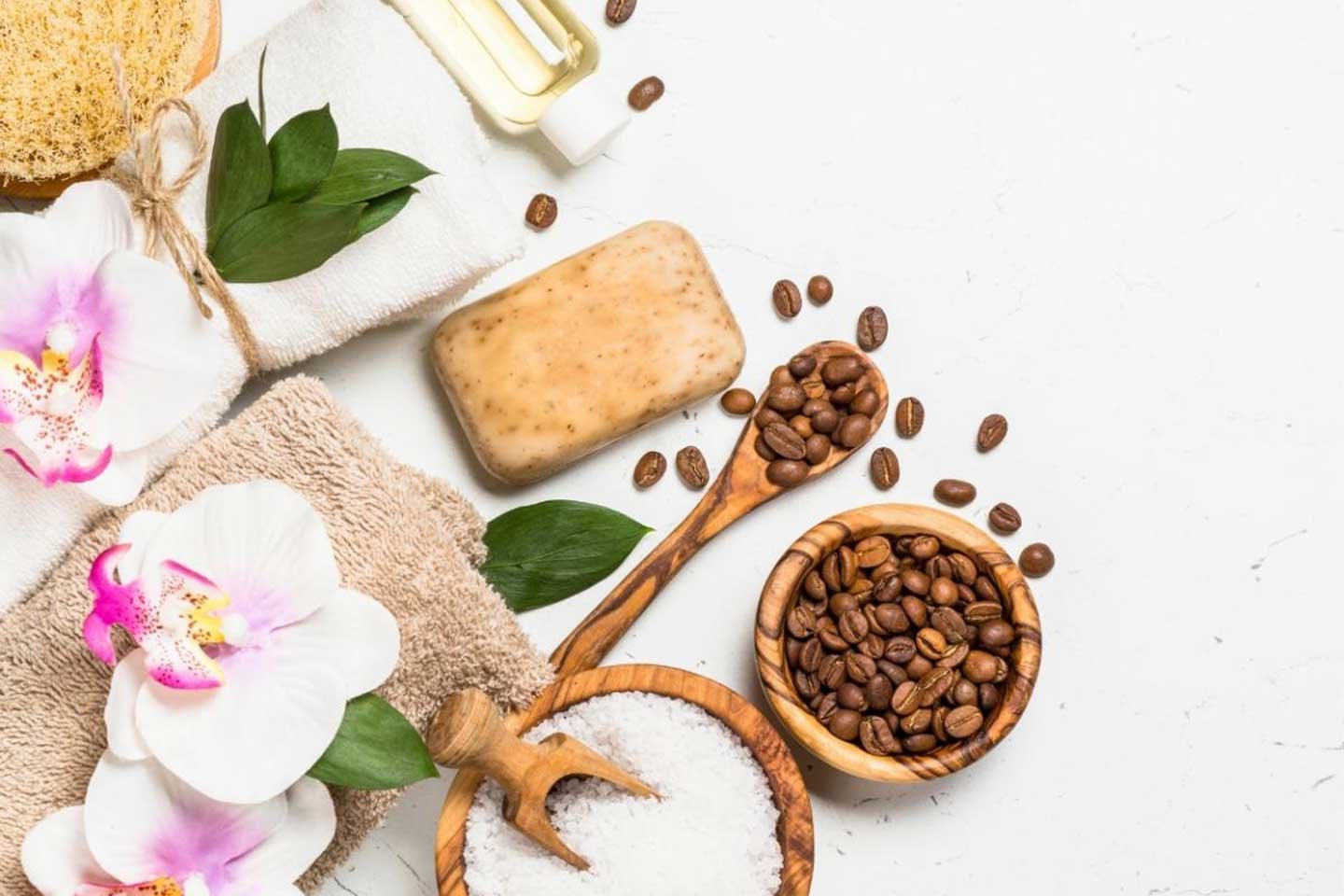
The beauty industry's embrace of coffee isn't just a testament to the bean’s versatility; it's an acknowledgment of its myriad benefits. From the kitchens of Michelin-starred restaurants to the labs of beauty moguls, coffee continues its enchanting journey, proving that its potential is limitless and its charm, universal.

Coffee's economic footprint and its business evolution
As coffee beans have journeyed across continents, they've not just altered cultures and morning routines; they’ve driven economies, spurred innovations, and birthed entire industries. From plantation economies in the past to the bustling café culture and specialized coffee vocations of today, coffee's business narrative is as rich and evolving as its flavor profiles.
The renaissance of coffee shop culture
The modern café isn't just a place to get your caffeine fix. It's an experience, an escape, and often, a reflection of societal values and nuances. In the fast-paced streets of Seoul, coffee shops often provide sanctuaries of serenity. Stacked with books, these spaces become urban oases where patrons can lose themselves in literature while sipping on a meticulously crafted latte.
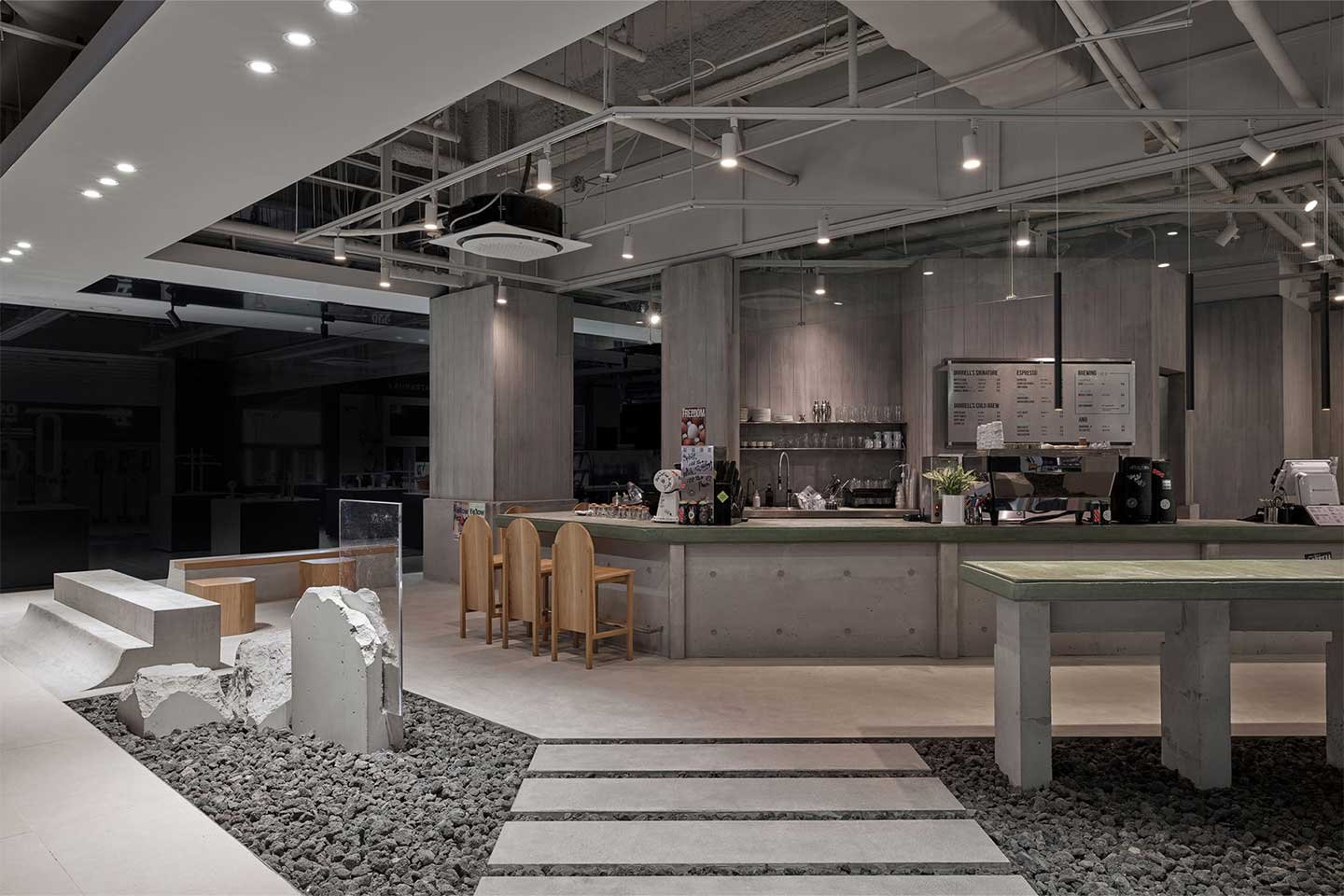 Perhaps one of Seoul’s coolest coffee hangouts, Dorrell Coffee 6z4 fuses specialty coffee and skateboarding culture.
Perhaps one of Seoul’s coolest coffee hangouts, Dorrell Coffee 6z4 fuses specialty coffee and skateboarding culture.
In contrast, in the lush landscapes of Guatemala, coffee shops provide more than just a serene ambiance. They offer a tangible connection to the land and its produce. These cafes, often situated close to plantations, give enthusiasts a chance to embark on insightful tours, witnessing firsthand the intricate process from bean cultivation to roasting, and eventually, to the cup they hold in their hands. This not only enhances appreciation but also roots the experience in authenticity and education.
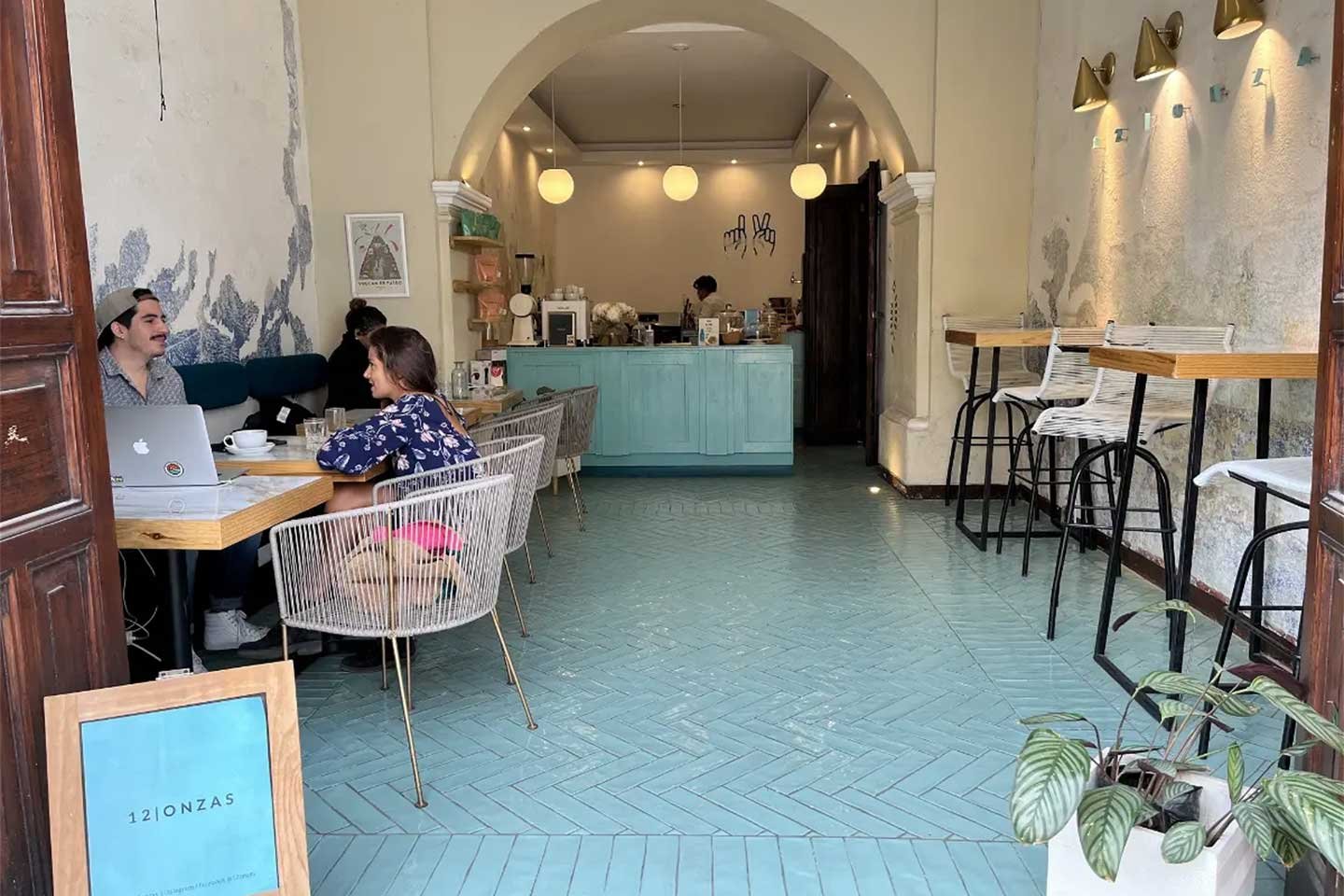
At 12 Onzas, Antigua, the coffee is direct from their farm, and they sell it on the shelves next to the counter.
From baristas to coffee sommeliers
The Third Wave Coffee movement, which emphasizes transparency, sustainability, and a deep respect for the artisanal aspect of coffee production, has redefined the role of a barista. Gone are the days when they were just the individuals behind the counter. Today, they are coffee sommeliers, equipped with an in-depth knowledge of bean origins, processing methods, and brewing techniques.
Their expertise is not just about crafting the perfect cup, but also about educating the consumer. They can discern the notes of berries from an Ethiopian brew or the hints of chocolate in a Colombian roast. Their dialogues often revolve around the elevation of bean cultivation, the impact of rain shadows, or the nuances of wet vs. dry processing.
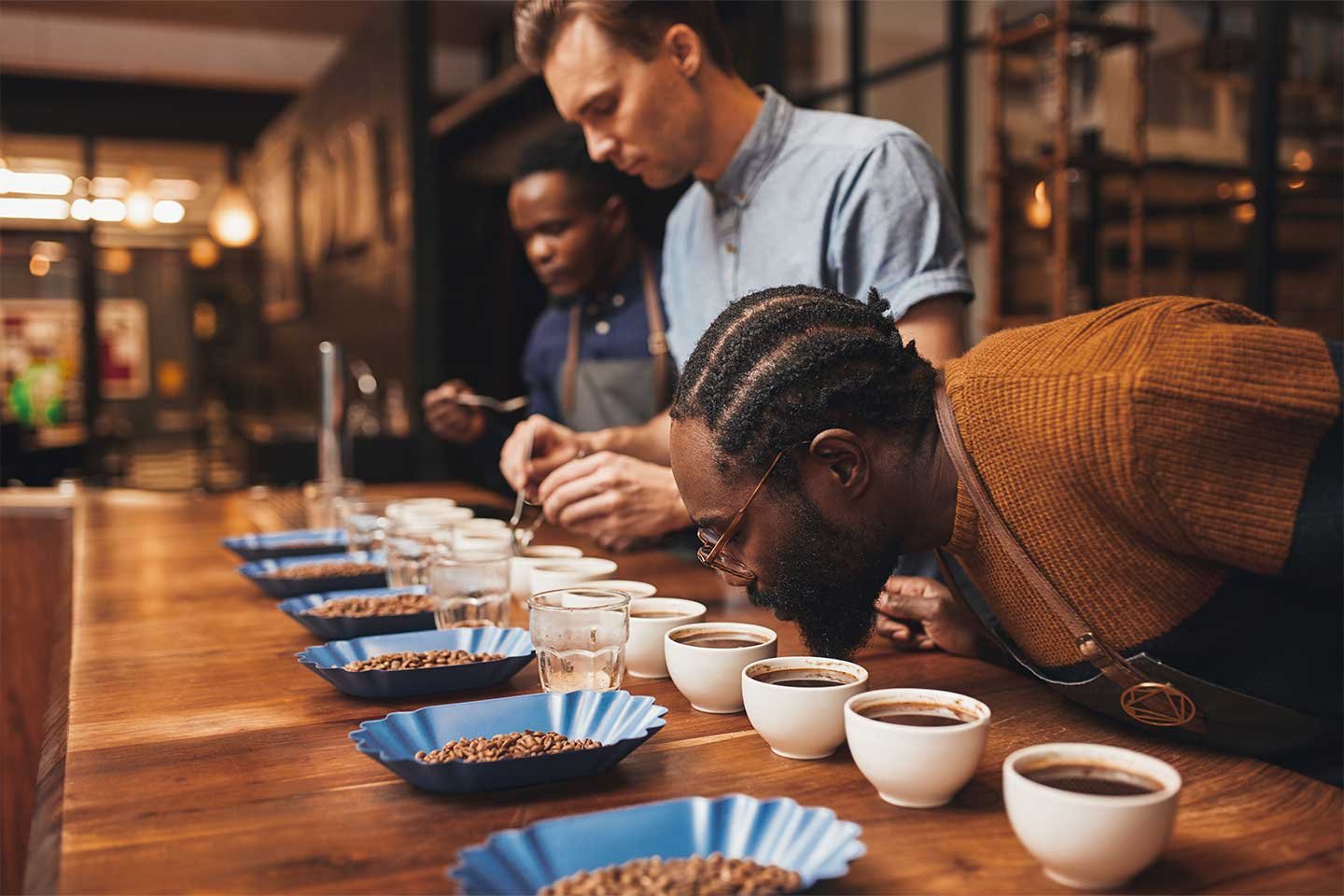
This evolution underlines a broader shift in the coffee industry. The modern coffee aficionado doesn't just seek a beverage; they seek a story, a connection, and an experience. Cafes have transformed into spaces of knowledge exchange, where the discourse isn't just about taste but also terroir, trade ethics, and techniques.
In the end, coffee’s economic footprint extends beyond mere trade figures. Its ripple effects are evident in the global café renaissance, in the elevated status of coffee professionals, and in the nuanced, informed conversations around this beloved beverage. As businesses adapt and evolve, one thing remains clear: the world doesn't just love coffee; it respects, values, and celebrates it in ever-evolving, multifaceted ways.
The green bean: environmental and ethical concerns
Coffee, an everyday luxury for many, has a complex trail that weaves through plantations, communities, ecosystems, and economies. As the world becomes more aware of sustainability and ethical considerations, the coffee industry is under the microscope, scrutinized for its environmental impact and sourcing practices.
Sustainable endeavors in coffee cultivation
Coffee plantations, spanning vast areas, have a profound impact on their surroundings. Traditionally, vast tracts of forests were cleared for coffee cultivation. However, as environmental repercussions become evident, a shift towards sustainable farming is gaining momentum.
In the verdant landscapes of Costa Rica, carbon-neutral farms are emerging as trailblazers. They adopt practices like agroforestry, where coffee is grown under the shade of native trees, reducing the carbon footprint and fostering biodiversity. These farms also engage in reforestation efforts, ensuring a balance between cultivation and conservation.
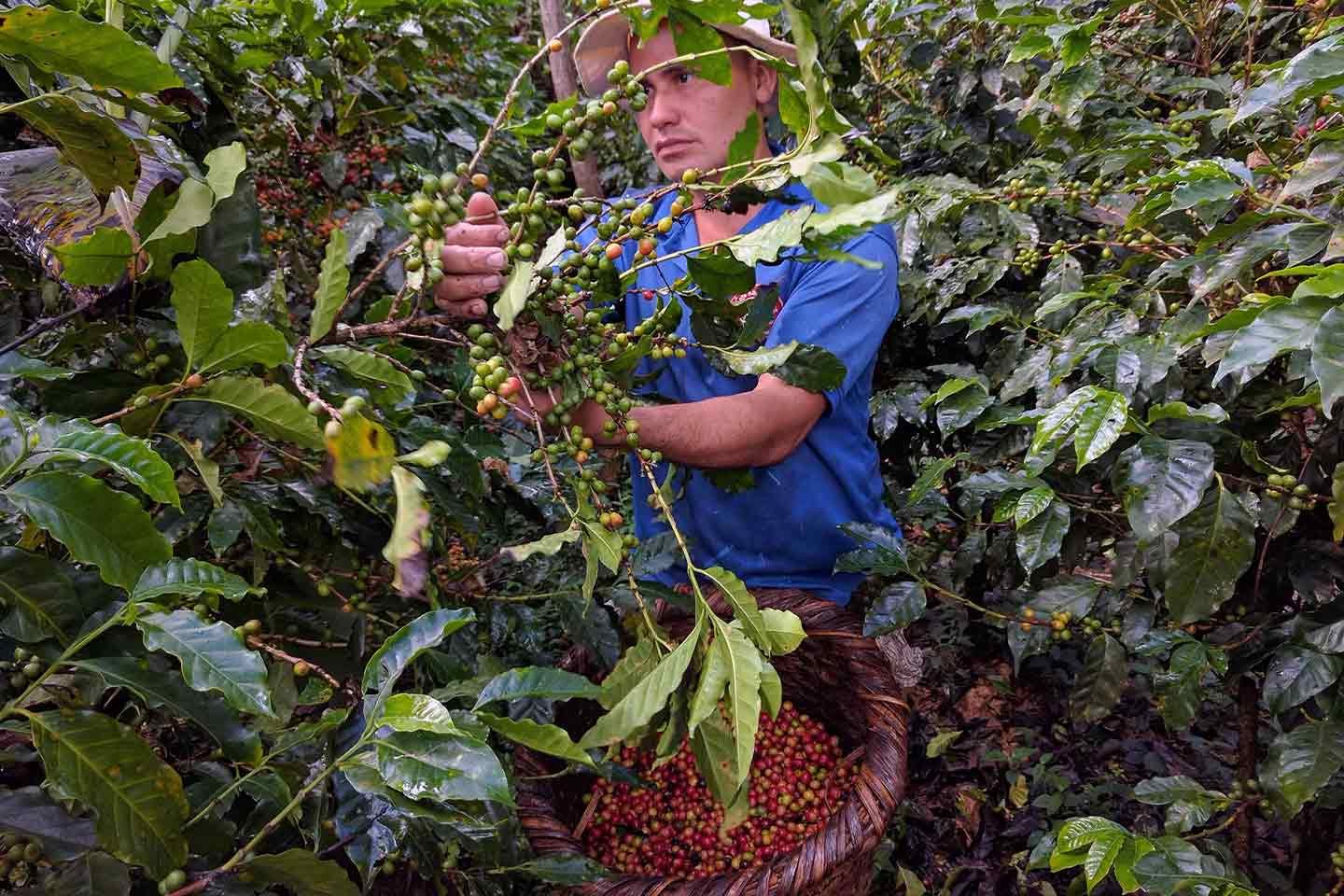 Costa Rica has set itself the goal of reducing CO2 emissions in coffee production.
Costa Rica has set itself the goal of reducing CO2 emissions in coffee production.
Further south, in the coffee-rich terrains of Colombia, there's a focus on preserving bird habitats. Bird-friendly certifications ensure plantations maintain specific canopy cover, helping in the conservation of migratory birds and local fauna. Such efforts also benefit the coffee quality, as shade-grown beans often possess deeper and more complex flavor profiles.
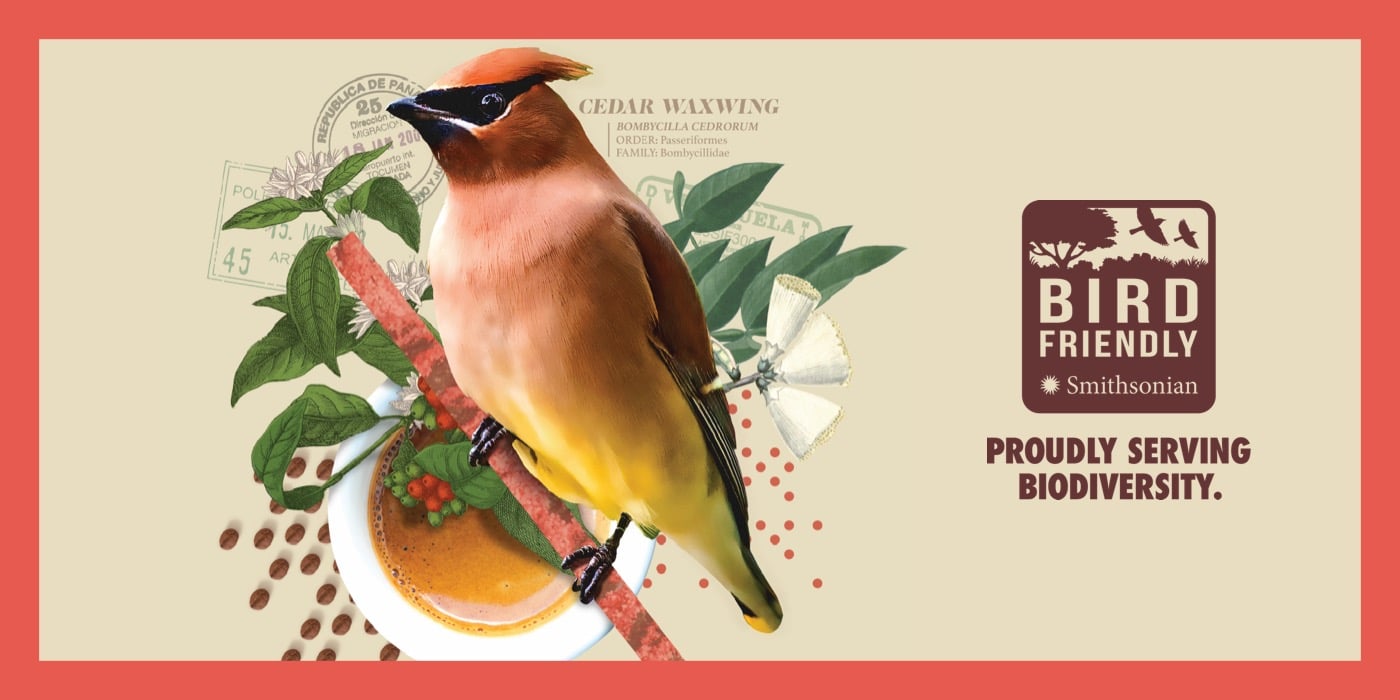
Ensuring fairness: the ethical sourcing movement
Beyond the environment, the human element in coffee's journey is crucial. For years, farmers, the backbone of the industry, often received a minuscule fraction of coffee's retail price. This imbalance, coupled with volatile market prices, made their livelihoods uncertain.
However, a wind of change is sweeping the industry. Ethical sourcing is no longer an add-on or a marketing gimmick; it's becoming central to how businesses operate. Certifications like the Rainforest Alliance go beyond ensuring environmental sustainability; they ensure decent wages, good working conditions, and community welfare.
The Direct Trade movement pushes this even further, seeking to eliminate middlemen. By fostering direct relationships between roasters and farmers, it ensures a larger share of profits for those tending to the crops. This not only guarantees better economic prospects for farmers but often results in collaborations to improve coffee quality, benefiting the consumer.
In essence, the modern coffee narrative is no longer just about taste or aroma. It's intertwined with the health of our planet, the welfare of communities, and the ethics of commerce. As consumers become more discerning and industries more accountable, coffee stands as a testament to how global goods can evolve to reflect contemporary values and priorities.
Coffee, a mirror to our global civilization
From the mist-kissed highlands of Ethiopia to the bustling urban cafés of New York, coffee has woven a tapestry as varied, vibrant, and profound as human civilization itself. Each bean, seemingly simple, carries in it tales of nations, dreams of farmers, innovations of businesses, and preferences of countless individuals.
The economic footprints of coffee trace pathways through history, showcasing colonization, trade wars, and globalization's ebb and flow. Simultaneously, each region's unique coffee culture offers glimpses into societal structures, values, and daily rhythms. The Turkish tradition of fortune-telling using coffee grounds or the Italian ritual of a swift espresso at the bar counter before work are not just habits; they are reflections of deeper societal paradigms.
However, as illuminating as its past might be, coffee's current narrative holds a mirror to contemporary global concerns and aspirations. The growing emphasis on sustainability within the coffee industry is a testament to our broader realization of the environmental fragilities we face. Ethical sourcing, ensuring farmers are compensated fairly, underlines a move towards a world prioritizing equity over mere profit.
In essence, as we cradle our mugs and let the aroma of freshly brewed coffee envelop us, we're not just partaking in a ritual; we're connecting with a legacy that spans centuries and continents. Coffee, in its multifaceted journey, encapsulates the struggles, triumphs, dreams, and aspirations of humanity. As we move forward, facing challenges and embracing opportunities, coffee remains our constant companion, reminding us of our shared past and urging us toward a more inclusive, sustainable, and harmonious future.